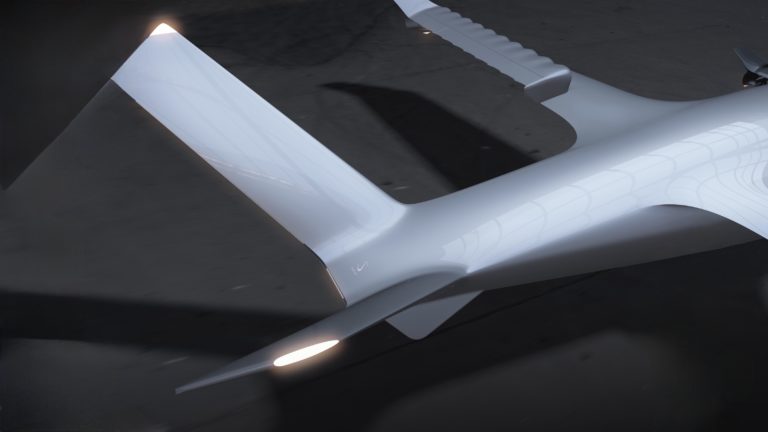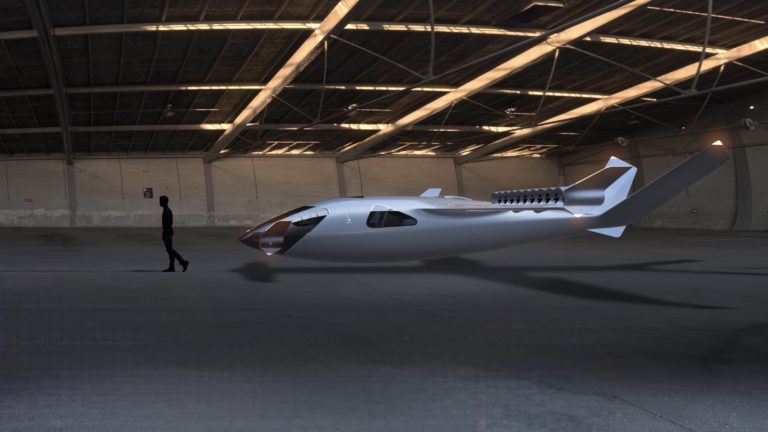Indian seaplane operator Mehair has confirmed a provisional sales agreement for up to 100 of Sirius Aviation’s in-development hydrogen-powered VTOL aircraft. The deal announced this week covers firm orders for 50 of the aircraft and options for another 50, which Sirius said are collectively worth $400 million (implying a per-aircraft price tag of $4 million).
According to the Swiss start-up, Mumbai-based Mehair will “oversee” the assembly of 50 of the aircraft in India, as well as 1,400 hydrogen “fan jet” propulsion units, 50 fuel cell powertrains, and 10 hydrogen generation units. Sirius has not said how it expects to establish production in India.
The company is developing two variants of the hydrogen-electric VTOL design. The private-use Sirius Business Jet will accommodate one pilot and up to three passengers and have an anticipated flight range of 1,150 miles (1,850 kilometers), whereas the larger Sirius Millennium Jet seats up to five passengers and can fly just over half that distance, with a range of 650 miles (1,050 kilometers). Both versions should be able to fly at altitudes of up to 30,000 feet at a cruise speed of 323 mph (520 kph).
The Sirius Jet’s propulsion system uses hydrogen fuel cells to power 28 electric ducted fans, 20 of which are mounted to the aircraft’s main wing while eight are in the canard. This ducted-fan concept is somewhat reminiscent of the battery-electric Lilium Jet, although Sirius has incorporated a distinctive V-shaped tail whereas Lilium opted to mount the wing at the rear of the fuselage.
BIG-NAME AEROSPACE AND AUTOMOTIVE PARTNERS ON BOARD
According to Sirius, several large industrial partners have been lined up to support the program, including BMW’s Designworks team, Leonardo’s aerostructures division, Israel Aerospace Industries (IAI), and the Sauber Group Formula 1 operation. In January, the company unveiled its hydrogen-electric ducted fan propulsion system and it says it aims to roll out prototypes of the aircraft in 2025.
For now, the cost of developing the new aircraft is being entirely supported by Sirius CEO Alexey Popov. He told AIN that his family business FED Joint Stock Company in Ukraine produces aircraft components and parts for companies including IAI and Pratt & Whitney, having previously been closely involved in design work for Antonov. According to him, certification costs can be kept to no more than $250 million, based on a projected timeline of no more than 12 months to build the first prototype and another six months for flight testing.
Mehair already has other options for modernizing its fleet, which is currently based on amphibious versions of the Cessna Grand Caravan utility aircraft. In January, the company signed an agreement with ZeroAvia to buy up to 20 of its ZA600 hydrogen propulsion system, which it plans to use to convert 10 of the Caravans. In July 2023, Mehair signed a contract covering orders and options for up to 50 of Jekta’s planned electric-powered PHA-ZE 100 amphibious aircraft.
As well as being involved in the manufacturing process for Sirius aircraft produced in India, Mehair said it also expects to develop franchise models for sales and support of the product. The company also aims to develop vertiports and liquid hydrogen refueling facilities, as well as provide training and maintenance for other operators.

